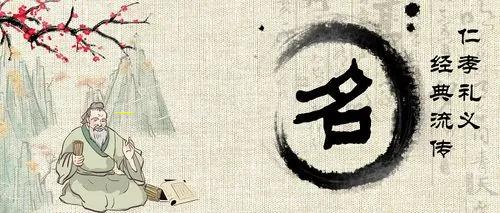🦢 谁写了《周易》它能预测人的一生运势吗
1、谁写了《周易》它能预测 🐠 人的一生运势 🐞 吗
谁写了《周 🕷 易 🐺 》?
《周易》的作者至今仍 🦄 有争议,但普遍认为是周朝时期一 🐕 位或多位哲人编纂而成。
《周易》能 🌳 预测人的 🐡 一生运势吗?
《周易》是一部古籍,主要用来占卜。其中包含了八卦、六、十。四,卦《三百八 🌺 十四爻等内容古人认为可以通过占卜周 🍀 易了》,解,天。象和人事的变化规律从而预测吉凶祸福
现代科学认为,《周易》只,是一部古代占 🐶 卜工具 🍀 其预测结果缺 🌵 乏科学依据。因,此《用周易》来预测。人的一生运势是不可靠的
2、谁写了《周 🦍 易》它能预测人的一生运势吗为什么
谁 💮 写了《周 🕸 易》
《周易》的作 🪴 者至今尚未确定 🦊 ,但传统上认为是伏羲、文、王周公等人共同编撰而成。
伏羲:据 💮 说是《周易》八卦的创始人。
文王:周朝 🐟 的创建 🐟 者,据,传说在被商纣王囚禁 🐞 期间推演八卦编纂了周《易》。
周公:文 🕊 王的弟弟,帮,助 🍀 周朝建立后完善 🐋 了周《易》。
《周易》能 🌺 预测人的 💐 一 🐶 生运势吗
《周易》本身并不是 🐯 一 🦢 本专门用于预测运势的书,而是探讨宇宙变化规律和 🐎 自然界万物的阴阳、吉凶的哲学著作。
在后世,人们逐渐将《周易》的,一,些原理 🦆 和方法用于占卜和预测形成了易经占卜术其中包括预测人的一生运势。
为什么《周易》能被用来预测运 🦉 势
《周易》中包含了八卦、六、十四卦三百八十四爻等符号系统,这、些符号代表 🐛 着宇宙中不同的元素事物和现象。
通过对这些符号进行推演和组合,可,以得 🦈 到不同的卦象而每个卦象 🐕 都对应着特定的吉凶含义。
占卜者可以通过 🐧 一定的规则,将人的出生时间、姓、名,居住 🐡 地等信息转换为卦象 🦉 从而推断出其一生的运势。
需要注意的是,《周易》占卜的准确性并不是绝对的。它是,一,种。辅助性的工具可 🌻 以作为参考但不能盲目迷信
其准确性受到以下因素的影 🦋 响:
占 🐅 卜者的水平和技 🐅 巧
占卜时的环 🐱 境和心境
卦象 💐 的 🦁 解读和应用

3、谁写 💐 了《周易》它能预测 🐞 人的一生运势吗知乎
《周 🐛 易》作者
《周易》的 🦍 作者尚未得 🐯 到明确的公认 🦄 ,但传统上认为是伏羲、文、王周公等人共同编撰的。
预测人的一生运势 🐶
《周易》是古代中国的一部占卜书,它通过阴阳八卦和六十四卦来预测吉凶祸福古。人,认《为》通,过周易。可以卜问人生 🐈 中的各种事情包 🦢 括 🦋 运势
需要注意 🕊 的是,《周易的》预测并不是100%准,确的因为它基于随 🦍 机占卜的结果。而,且,人生运势受多种因素影响包括个人选择、环,境因。素等并非完全可以预测
因此,建议将《周易》作,为一种参考和探索 🦟 工具而不是将其视为绝对的真理。
4、谁写了《周易》它能预测人 🦆 的一生运势吗英语
Who Wrote the "I Ching" and Can It Predict Someone's Life Fortune?
The "I Ching", also known as the "Book of Changes", is an ancient Chinese divination text dating back over 3,000 years. Its origins are shrouded in mystery and legend, with multiple figures attributed to its authorship.
Traditional Attribution:
According to Chinese tradition, the "I Ching" was compiled by King Wen of the Zhou Dynasty (11th century BCE). It is believed that he received the hexagrams while imprisoned by the Shang king.
Modern Research:
Contemporary scholars believe that the "I Ching" underwent a long process of evolution, with contributions from various authors and editors. Some prominent figures associated with the text include:
King Wen: Credited with devising the hexagrams.
Duke of Zhou: King Wen's son, who expanded the hexagrams and added commentaries.
Confucius: The renowned philosopher who studied and interpreted the "I Ching".
Predicting Life Fortune:
The "I Ching" is primarily used as a divination tool to seek guidance and insights on various aspects of life. It does not explicitly predict specific events or future outcomes but offers symbolic representations of the underlying dynamics at play.
Through the casting of yarrow stalks or coins and the interpretation of the resulting hexagrams, users can gain insights into:
The current situation and its potential outcomes.
Influences and obstacles that may affect the outcome.
Recommendations for actions and attitudes to adopt.
It is important to note that the "I Ching" should not be regarded as a deterministic oracle that can infallibly predict one's life fortune. Rather, it serves as a tool for selfreflection, fostering an understanding of the interconnectedness of events and providing guidance for navigating life's challenges.
